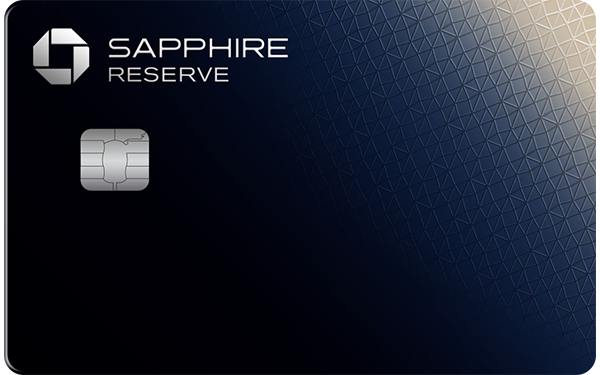Most products on this page are from partners who may compensate us. This may influence which products we write about and where and how they appear on the page. However, opinions expressed here are the author's alone, not those of any bank, credit card issuer, airline or hotel chain. This page may include information about American Express products currently unavailable on Slickdeals. American Express is not a partner of Slickdeals.
Anyone who earns travel rewards is faced with a constant choice: to redeem them or just pay cash for their travel reservations.
While this could seem like a simple decision, there are lots of factors you should consider if you want to achieve the maximum value of your points and miles while also saving as much money as possible.
Quick Tip
Try out our Points or Cash calculator! It will tell you what’s a better deal based on which rewards program your points or miles are in.
When to Redeem Points and Miles for Travel

When you redeem your travel rewards points or miles, you can make reservations at little to no personal cost. This can help drive down the cost of your trip, but it's not the only reason to consider using your points or miles more frequently.
Travel rewards points and miles lose value over time and don't earn interest. Because of this, it doesn't make sense to hold on to them for the long term, waiting in the hopes you can redeem them for the best possible rewards sometime in the future.
Here are some of the best times to use points and miles instead of cash.
High-Value Point Redemption Opportunities
You can often receive the most value from your travel rewards when they're redeemed for premium class international airline tickets at the lowest mileage levels. When you find these, you should always pull the trigger and unload your points and miles. These are tickets that often sell for $5,000, but cost less than 150,000 miles, giving you a value of over 3 cents per mile.
With hotels, the high values usually come during special events when rates are high and empty rooms are scarce. When you can book a room during these types of events, you can also receive value that's far above average.
Quick Tip
If you’re unsure how much your points and miles are worth, check out Slickdeal’s monthly valuation guide. Values are approximate, but they should give you a good place to start.
Clearing Out Low Point Balances
You may have several relatively small balances of points and miles from credit cards you don't use often, or from traveling with an airline or staying at a hotel chain infrequently. When you have a chance to redeem these small balances, you should do so, even if you aren't receiving exceptional value.
When You're Points-Rich
If you make it a hobby to earn as many points and miles as you can, then you may be what I call "points-rich." This means you have enough points and miles to take care of your travel needs for the next year or two.
If that's the case, don't continue to hoard points on the hope that you'll eventually receive outstanding value from them. If you can receive average value, and you have enough rewards to last you another year or two, then it's better to spend your rewards than to pay cash.
Earn Valuable Points or Miles for TravelBest Travel Credit Cards
Visit the Marketplace
Reasons to Pay Cash Instead

Despite the allure of cashing in on travel rewards points and miles, it often makes more sense to pay for your travel reservations instead. Here are several situations where you would be better off paying for your trip in cash.
If You'll Receive Poor Redemption Value
Many airline and hotel programs make it difficult to redeem your travel rewards for the most possible value. In some cases, travelers are even shown prices that are two or three times as much as the best available. Never redeem your rewards for terrible value. Instead, consult Slickdeals' monthly valuation guide to get an idea of what your points and miles are worth.
When There are Low-Priced Alternatives
Let's say an airline is charging 25,000 miles for a round-trip ticket that's selling for $500. This appears to give you 2 cents in value per mile redeemed, which can often be a good deal.
But if you check other the prices on other airlines, you might find a discount carrier that will fly you on a similar itinerary for just $250. Now that you know this, you have to conclude that you're only receiving one cent in value per mile redeemed, which isn't that great.
The point is you can't just compare the value of your awards to what that airline is selling their tickets for, you must compare it to the price you would have paid if you shopped around. And if you can find very low-priced travel options, it's often better to pay in cash rather than redeem your miles.
Tax-Deductable Trips
If you're a small business owner, you should save your points and miles for your leisure travel. That's because the cost of business travel is typically a tax-deductible expense.
When You're Trying to Earn Elite Status
With the airlines, you usually don't earn elite status from award trips (Delta is an exception). So when you're close to earning the next level of status, it's a good time to save your points and miles for another time. But with hotels, award stays usually count toward elite status, so this isn't a factor.
How to Get the Best of Both Worlds
Amazingly, it's often possible to get all of the benefits of paying with cash when redeeming your points or miles. While many credit card rewards programs allow you to redeem your points directly for travel reservations, there are two that offer value that can approach what you would often receive from redeeming your miles.
The Chase Ultimate Rewards program offers Chase Sapphire Reserve® cardholders 1.5 cents per point redeemed for travel reservations through Chase. And if you have an American Express Business Platinum Card, then you can receive a 35% rebate when you redeem your Membership Rewards points through Amex travel for business or first-class tickets. You can also receive this bonus when you use points to purchase economy class tickets with the carrier that you selected for your $200 annual fee rebate. This works out to 1.54 cents in value per point redeemed.
Chase Sapphire Reserve® Card
- Our Rating 4.5/5 How our ratings work
- APR20.24% - 28.74% (Variable)
- Annual Fee$795
-
Sign-Up Bonus
125,000Chase Ultimate Rewards Points
Earn 125,000 bonus points after you spend $6,000 on purchases in the first 3 months from account opening. Dollar Equivalent: $2,750 (125,000 Chase Ultimate Rewards Points * 0.022 base)
This card features an annual credit for travel purchases, which can offset the annual fee, plus bonus points when you sign up. You'll also get free access to tons of Priority Pass lounges and restaurant options around the world, along with access to the Chase Sapphire Lounge network.
Overview
If you’re looking to elevate your travel experience, look no further than the Chase Sapphire Reserve. When you first get approved, you’ll earn a generous sign-up bonus that can be used for travel-related spending booked through Chase Travel℠. Transfer the points to one of Chase’s airline or hotel partners and they’re potentially worth even more.
Pros
- An array of premium travel perks including access to Priority Pass lounges
- Easy-to-use $300 travel credit that helps offset card's annual fee
- Generous rewards rates for spending
Cons
- High annual fee may be a deterrent for some
- Perks are starting to get stale relative to newer competition
But in either case, the airline tickets you receive will be the same as any other revenue ticket. So you can earn miles from the ticket, and credit toward elite status, just as if you had purchased them with cash.
Bottom Line
Just as it's important to earn as many points and miles as you can, it's also critical that you spend your rewards wisely. By carefully considering when to redeem your rewards, and when to purchase your reservations, you can be sure to stretch your rewards and your dollars as far as possible.










